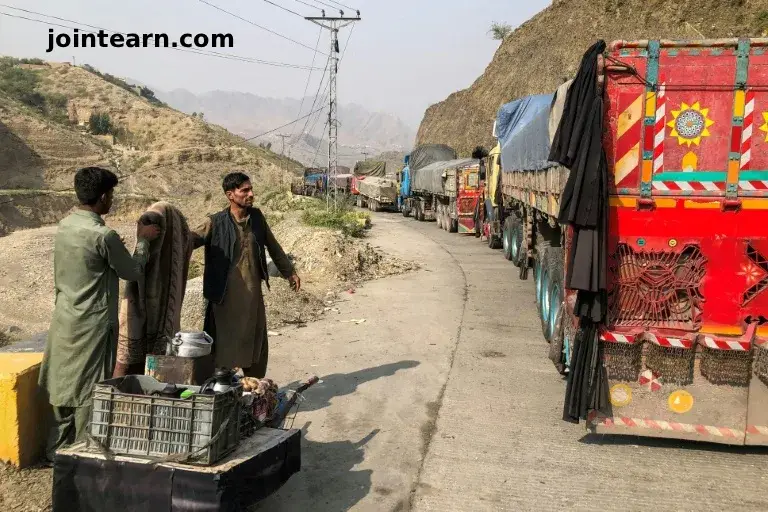
Istanbul, Turkey — Afghan and Pakistani delegations are convening in Istanbul on Saturday in a high-stakes effort to solidify a fragile truce and address mounting security tensions along the shared border, following a series of deadly clashes that left dozens of civilians and soldiers dead in recent weeks.
The Istanbul talks aim to transform a temporary ceasefire into a lasting peace mechanism after both countries engaged in retaliatory military strikes, sparking one of the most severe confrontations between Kabul and Islamabad in years.
Background: A Cycle of Violence and Distrust
The border violence erupted two weeks ago following explosions in central Kabul, which the Taliban government blamed on Pakistan. In response, Afghan forces launched cross-border attacks. Islamabad retaliated with what it described as “precision strikes” on Afghan territory targeting militant strongholds, according to Pakistani security sources.
The escalating hostilities forced the closure of border crossings, paralyzing trade and displacing civilians in border regions already struggling with economic hardship.
Both sides agreed to a 48-hour ceasefire, which collapsed soon after, with Kabul accusing Islamabad of violating the terms. A second truce—brokered by Qatar and Turkey in Doha—was announced last Sunday and has largely held, paving the way for the Istanbul negotiations.
Goals of the Istanbul Peace Talks
The Istanbul summit represents a critical diplomatic step to formalize border peace and establish security “mechanisms” first outlined during the Doha discussions.
The Afghan delegation, led by Deputy Interior Minister Haji Najib, departed for Turkey on Friday. Pakistan has not officially disclosed its lead representative but confirmed participation through its foreign ministry.
“The negotiations must address the menace of terrorism emanating from Afghan soil towards Pakistan,” said Foreign Ministry spokesman Tahir Hussain Andrabi on Friday.
For the Taliban-led Afghan government, the top priority is safeguarding Afghanistan’s territorial integrity, while Pakistan seeks guarantees that anti-Pakistan militant groups, particularly the Tehrik-i-Taliban Pakistan (TTP), will not operate from within Afghan borders.
Security and Intelligence Cooperation in Focus
Analysts say the Istanbul meeting could establish new frameworks for intelligence sharing and counterterrorism coordination to prevent future escalations.
“The Istanbul meeting is essential because that’s where mechanisms will be agreed upon—how Pakistan can raise concerns about anti-Pakistan elements inside Afghanistan,” said Ibraheem Bahiss, an analyst with the International Crisis Group.
According to Bahiss, these mechanisms could include systems where Pakistan provides intelligence coordinates of suspected militant activity, and Afghanistan responds through its own security operations rather than allowing cross-border strikes.
Still, Bahiss expressed caution about the long-term impact of such measures.
“I’m not so hopeful that a technical mechanism will truly address the fundamental drivers of this escalatory cycle,” he noted.
A Fragile Partnership Tested by History
Pakistan has long been viewed as the Taliban’s most significant backer, supporting them for years as part of its strategy to counter Indian influence in the region. However, relations have soured since the Taliban’s 2021 takeover of Kabul, as Pakistan increasingly blames Afghan-based militants for resurgent attacks on its security forces.
The initial Kabul explosions that triggered the latest conflict came just as Afghanistan’s foreign minister was on an unprecedented visit to India, further straining Islamabad’s trust.
Despite these tensions, Turkey and Qatar have been instrumental in facilitating backchannel diplomacy, encouraging both sides to commit to dialogue over confrontation.
Turkey’s Mediating Role
Turkey, which hosted earlier rounds of Afghan peace initiatives, praised the Doha declaration and reaffirmed its readiness to “support all efforts aimed at peace and stability” in South Asia.
While the specific timing and venue of the Istanbul talks remain undisclosed for security reasons, officials confirm that technical teams from both sides are expected to work on verification protocols, border management, and joint monitoring structures.
“This meeting represents a turning point for restoring stability,” a Turkish diplomatic source told AFP. “The goal is not just to stop the violence but to build mutual confidence.”
The Road Ahead
As both nations face mounting domestic and regional pressures, the success of the Istanbul talks could determine whether the current truce holds—or collapses into renewed conflict.
With cross-border trade suspended and border communities on edge, stability along the Durand Line remains a top priority for both governments.
“The Istanbul peace dialogue is a test of political will,” said Bahiss. “Whether Kabul and Islamabad can finally move past mutual suspicion will shape the future of South Asia’s security landscape.”


Leave a Reply